
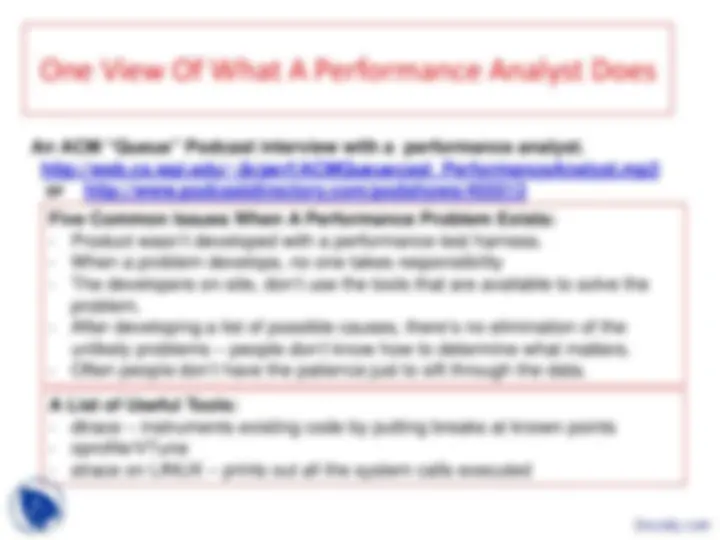
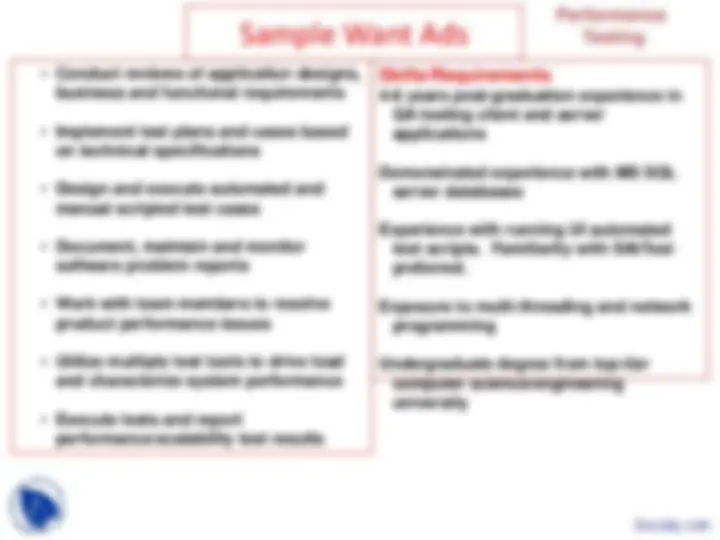
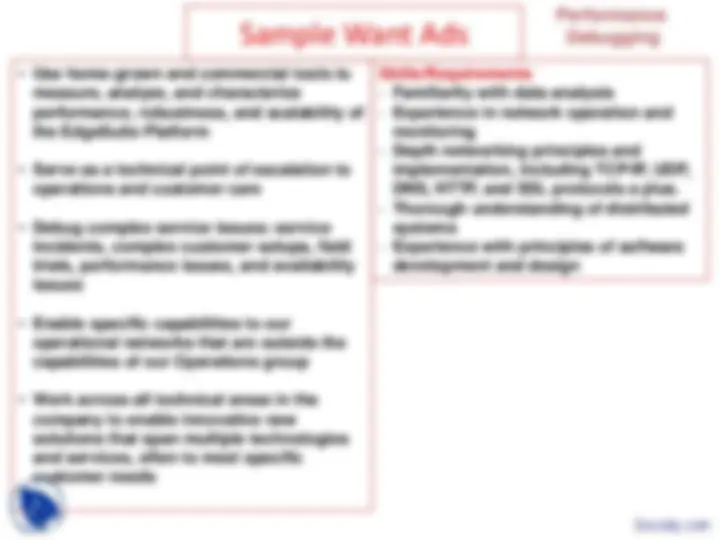
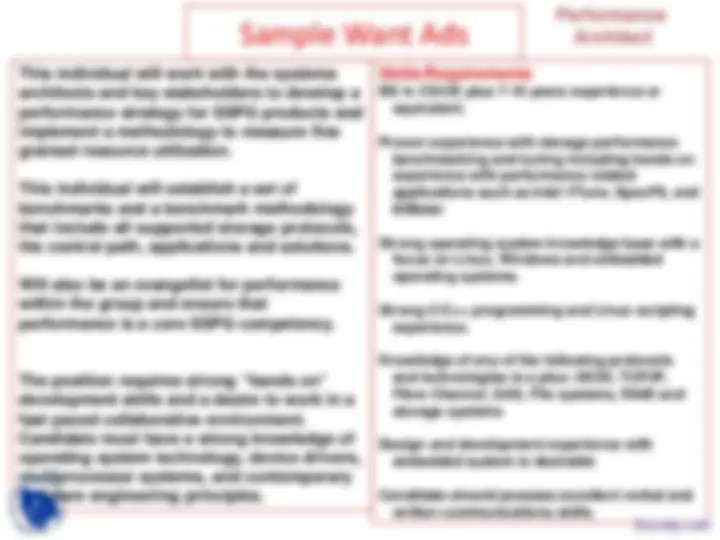
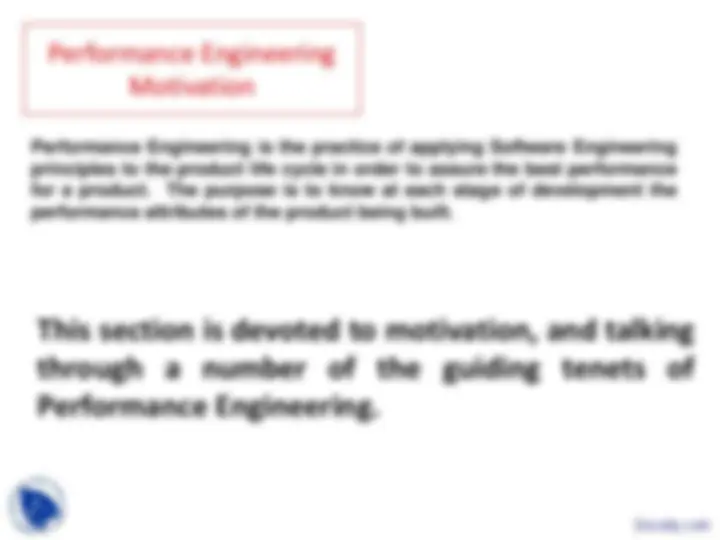
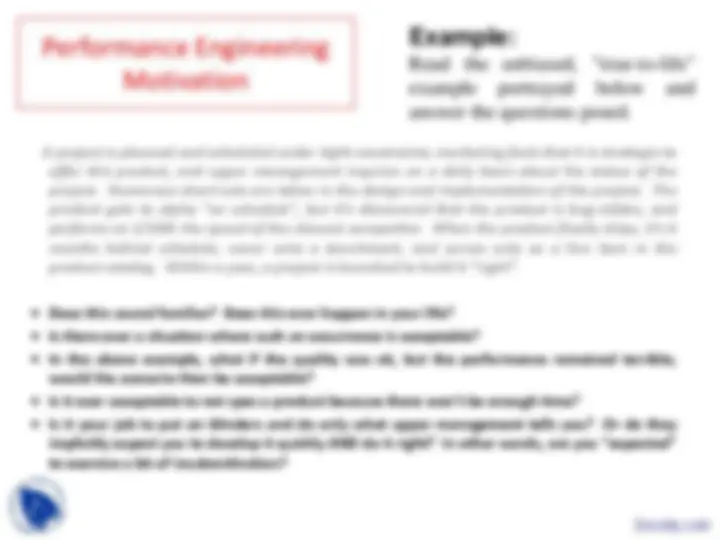
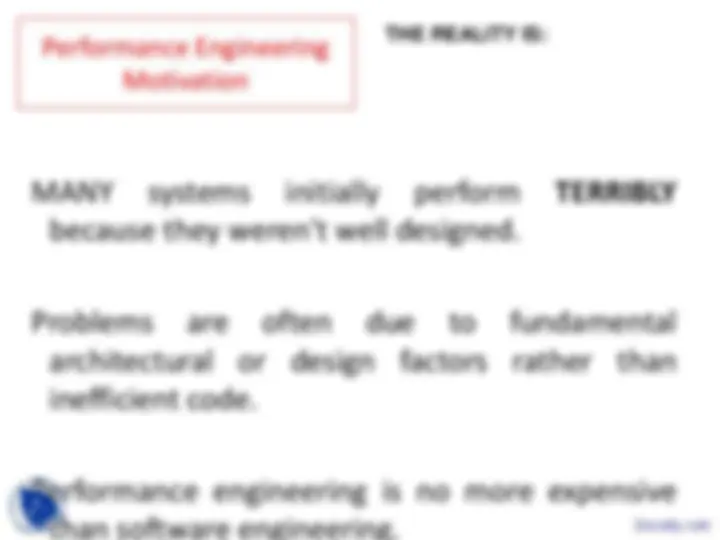
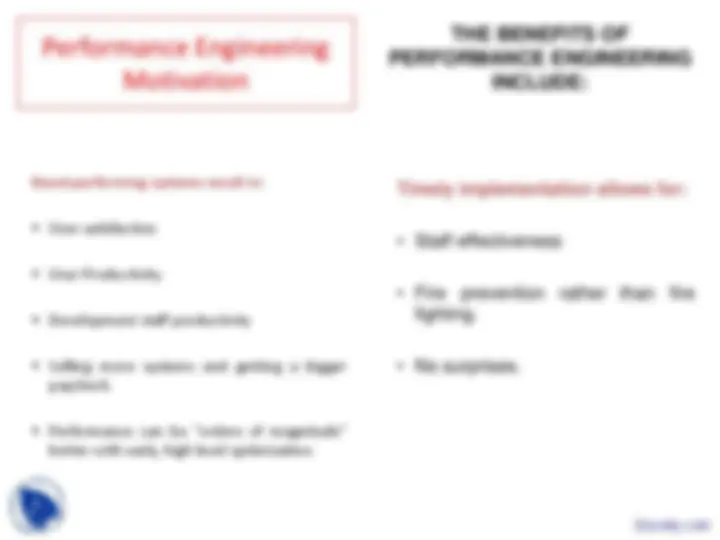
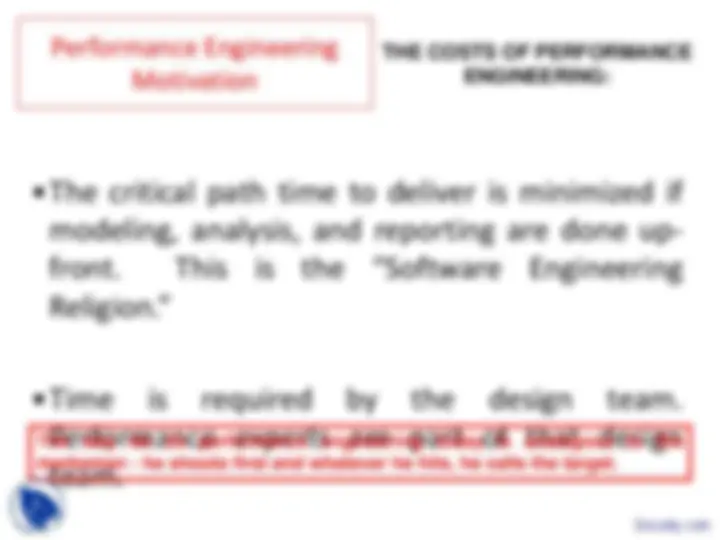
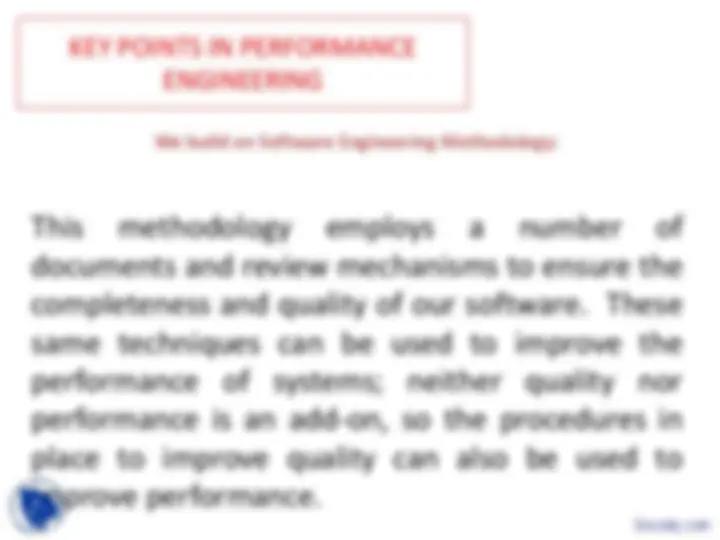
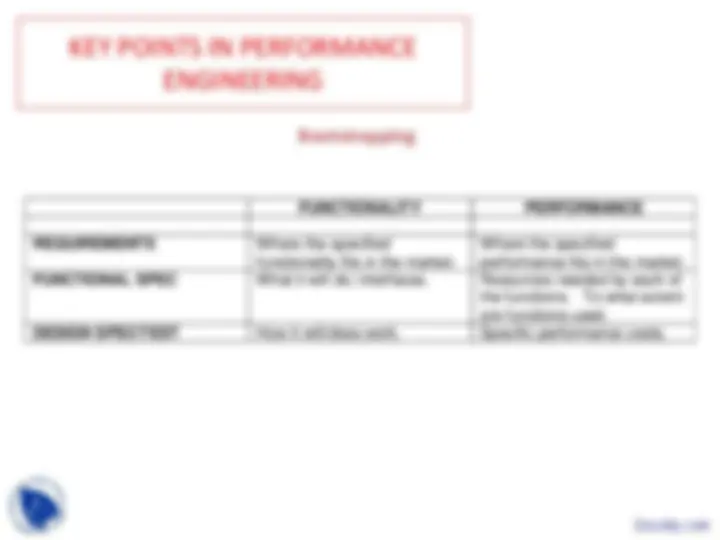
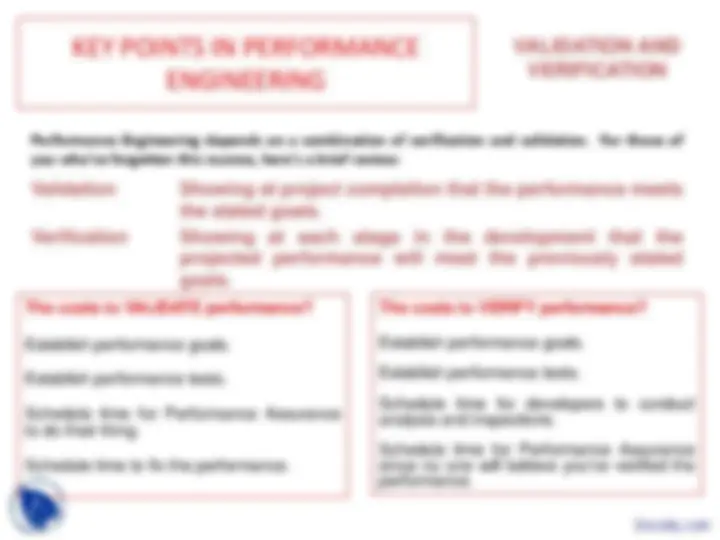
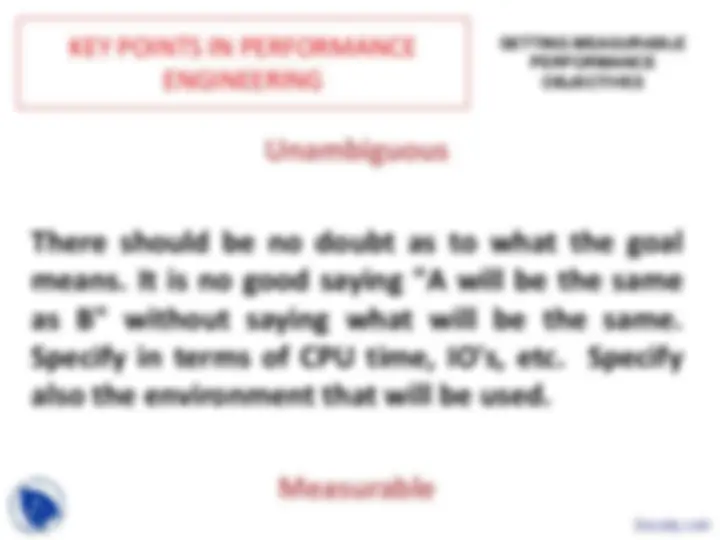
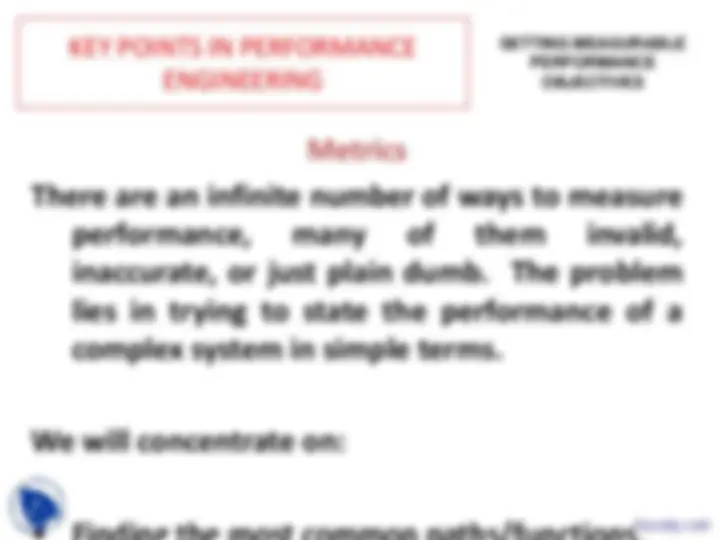
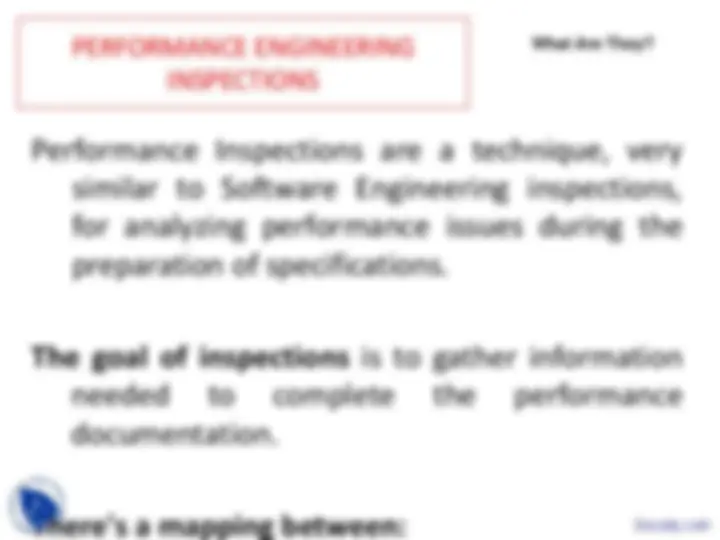
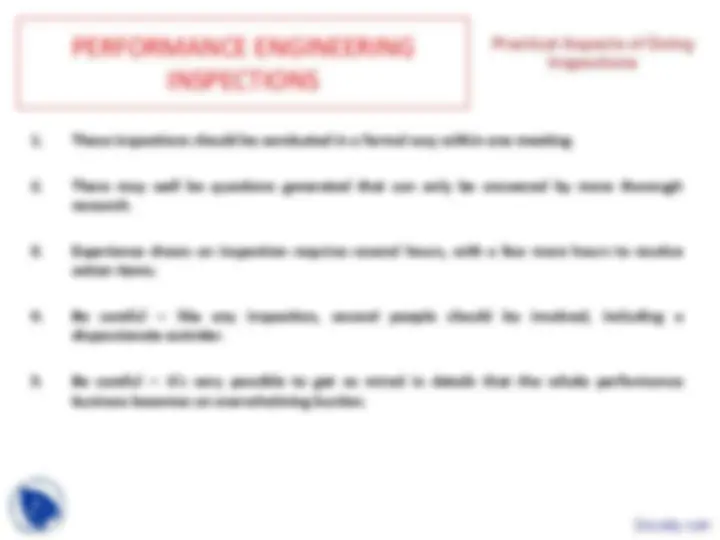
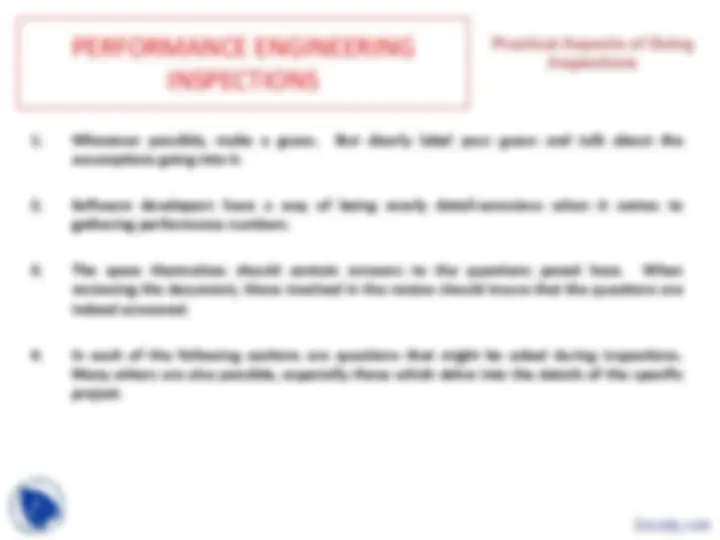
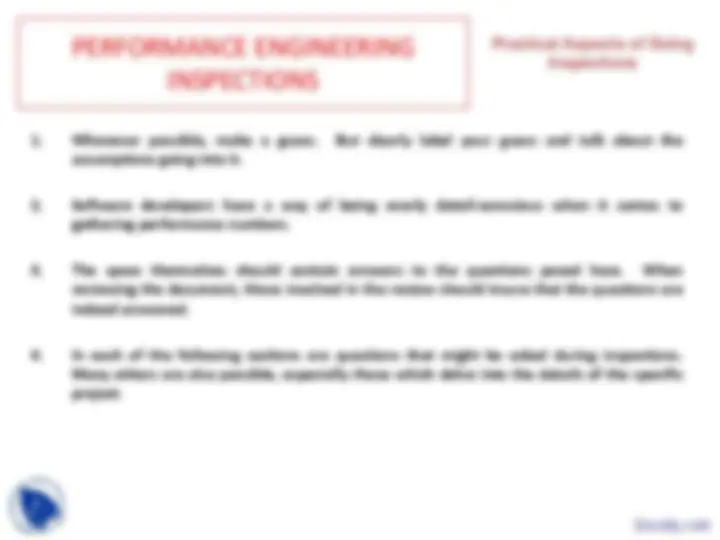
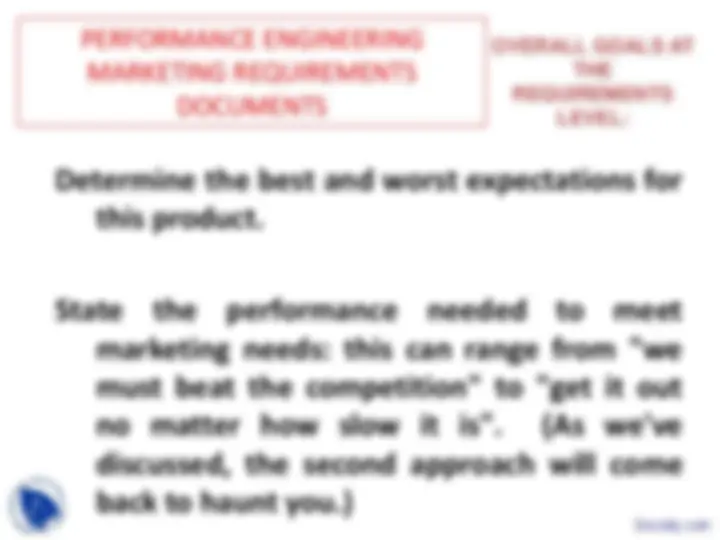
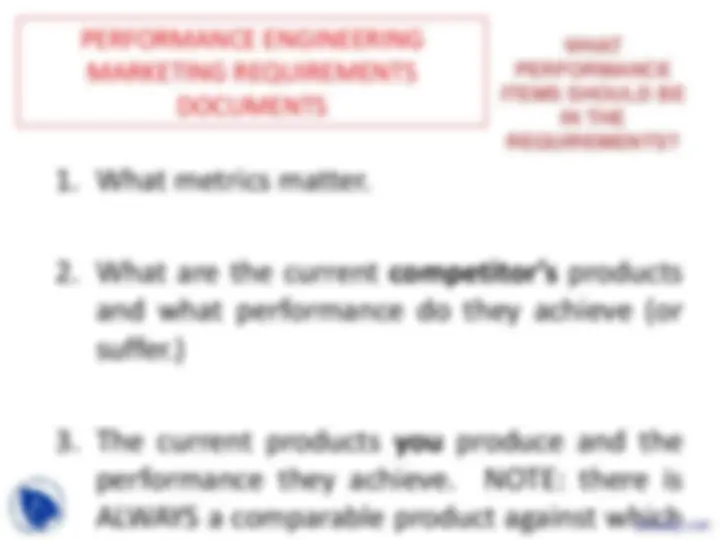
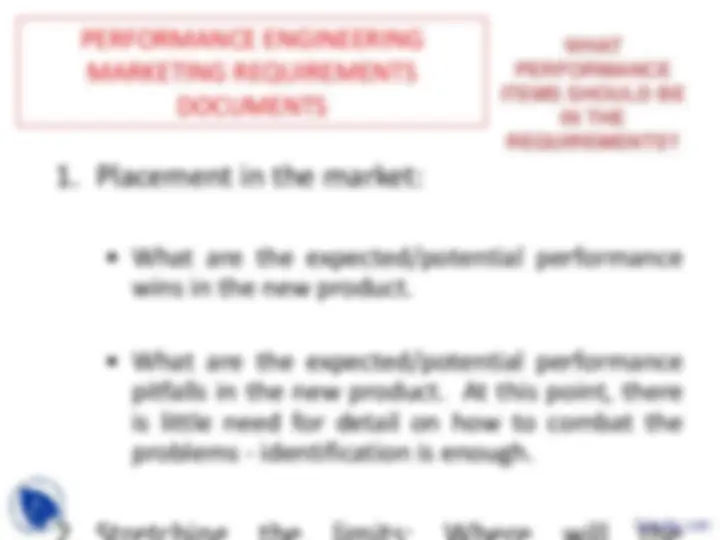
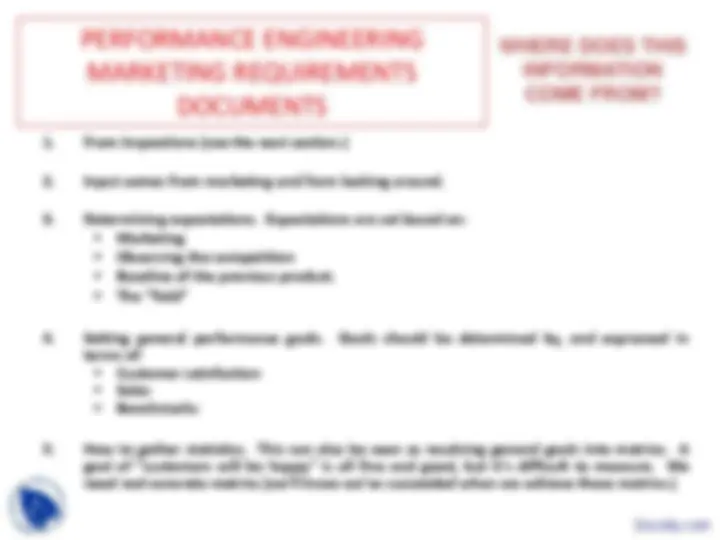
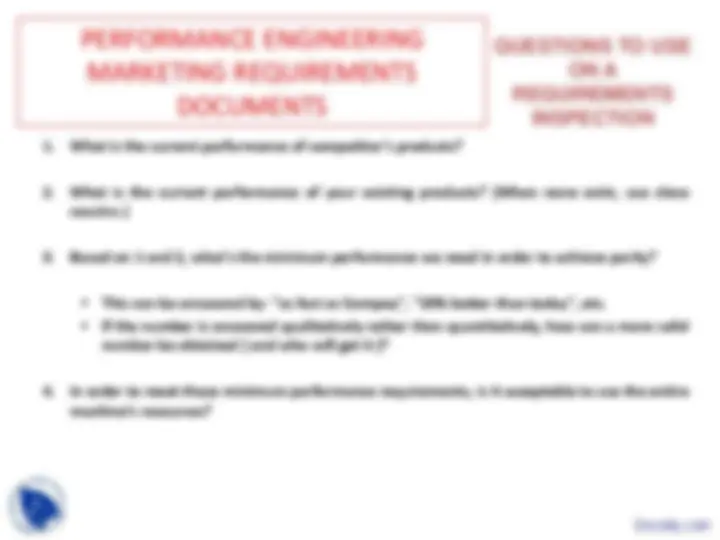
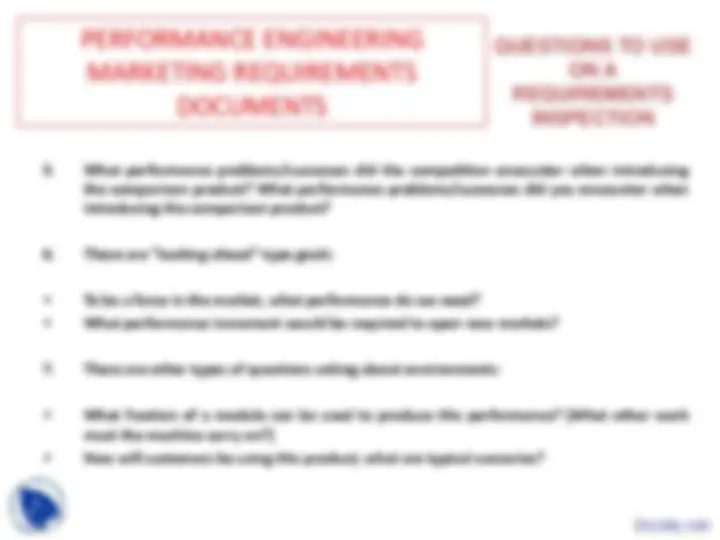
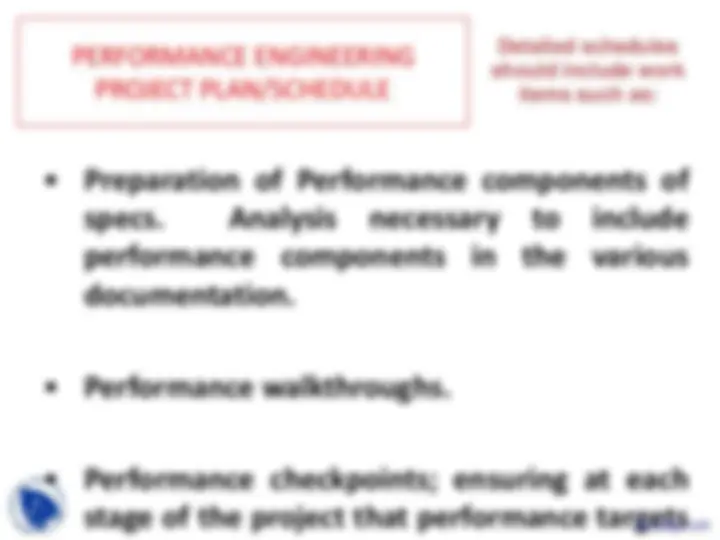
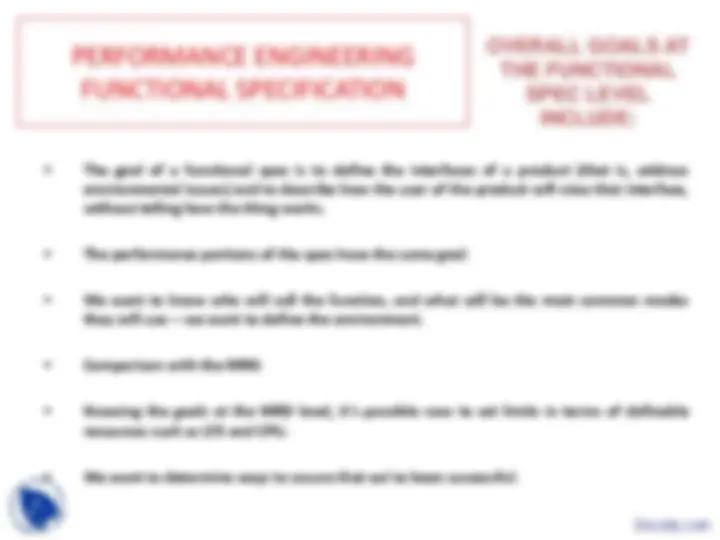
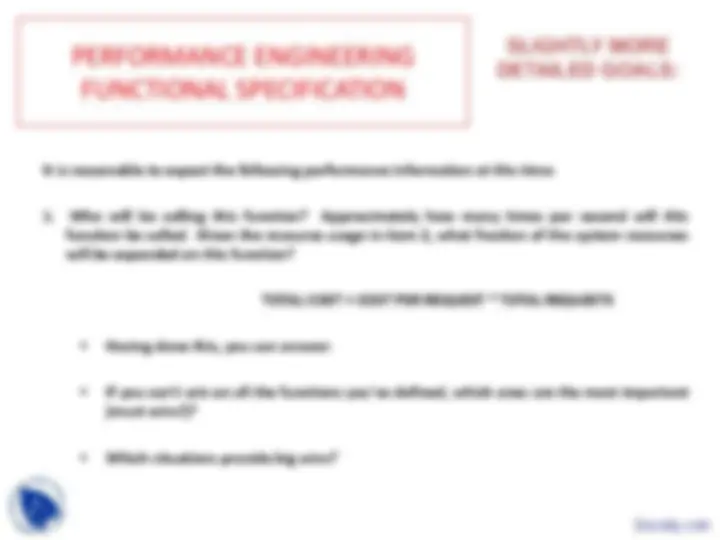
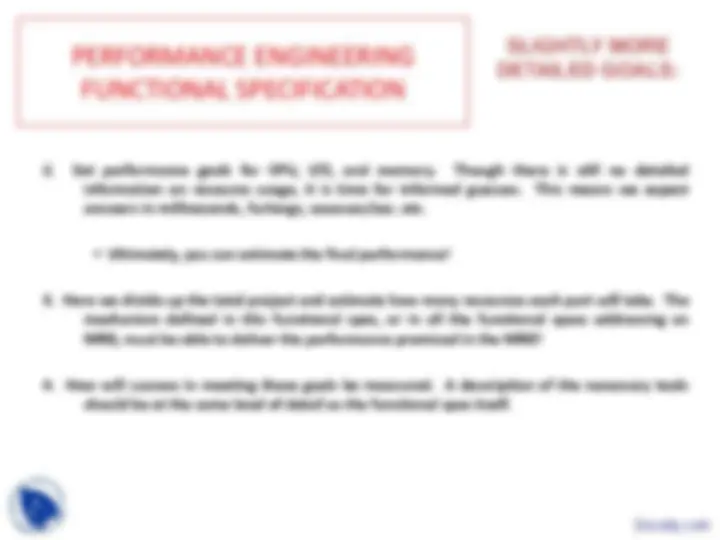
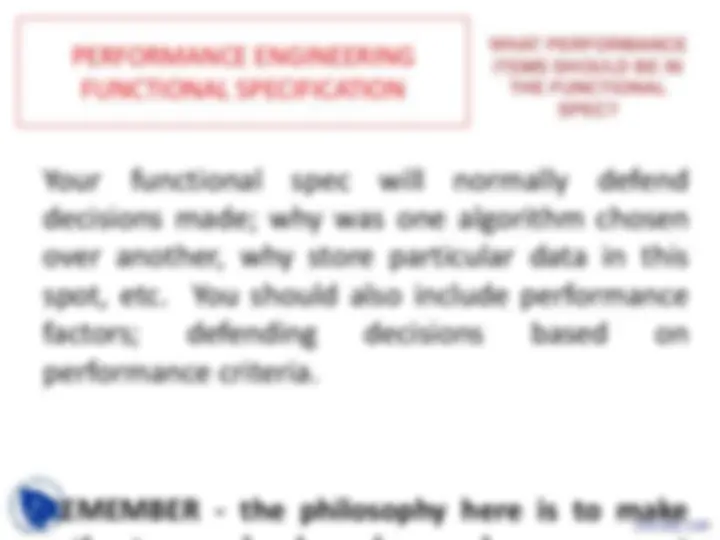
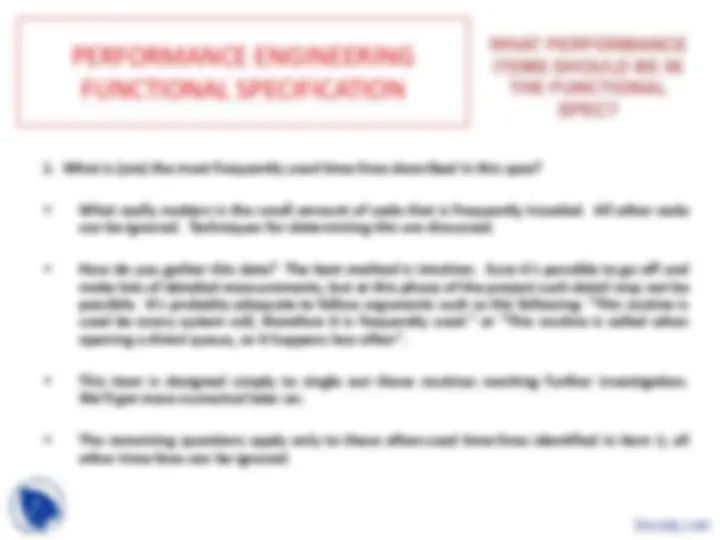
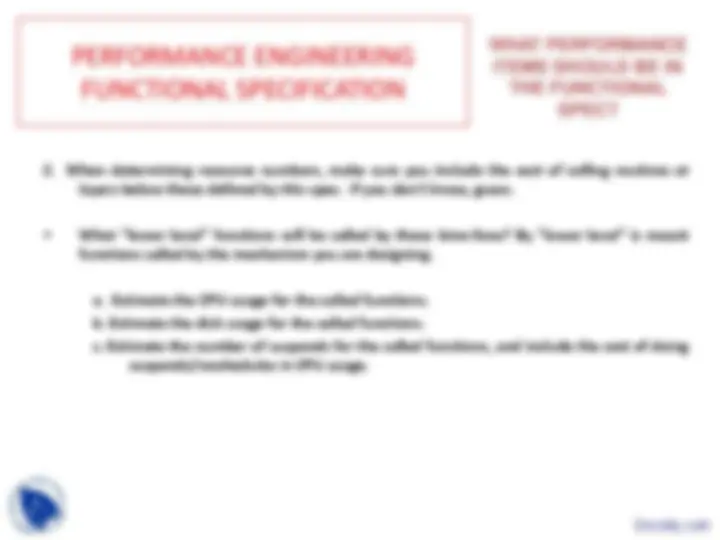
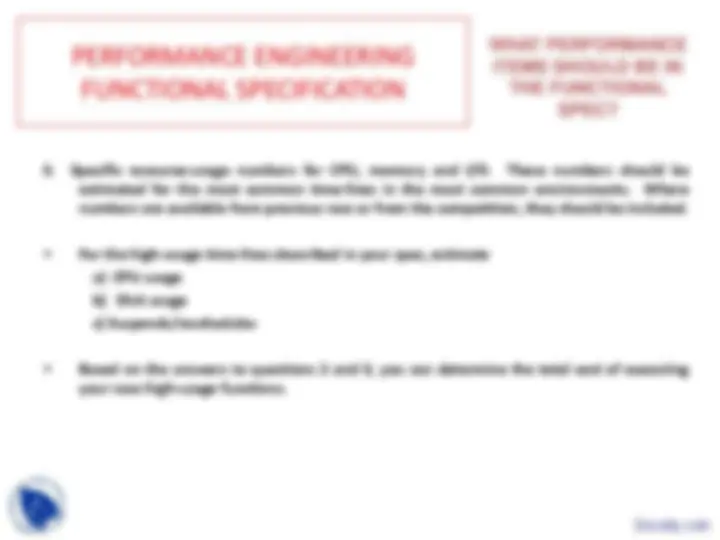
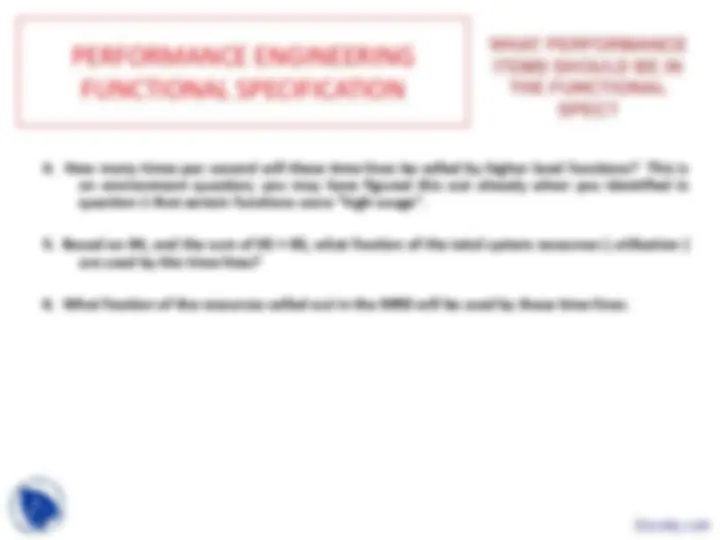
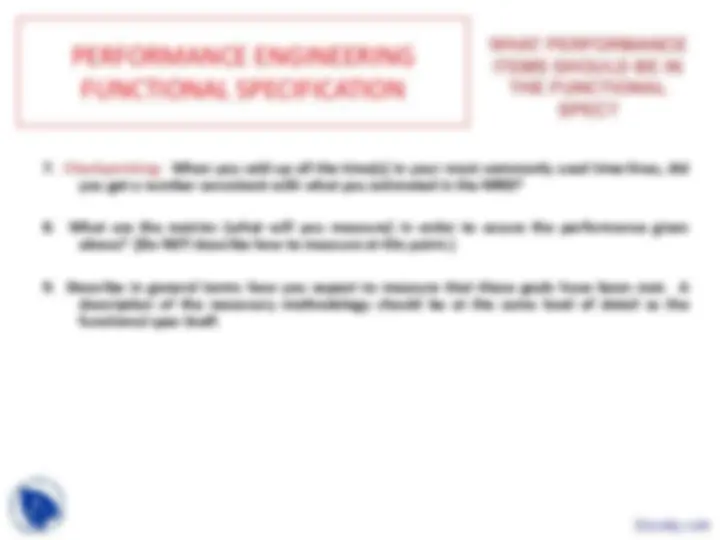
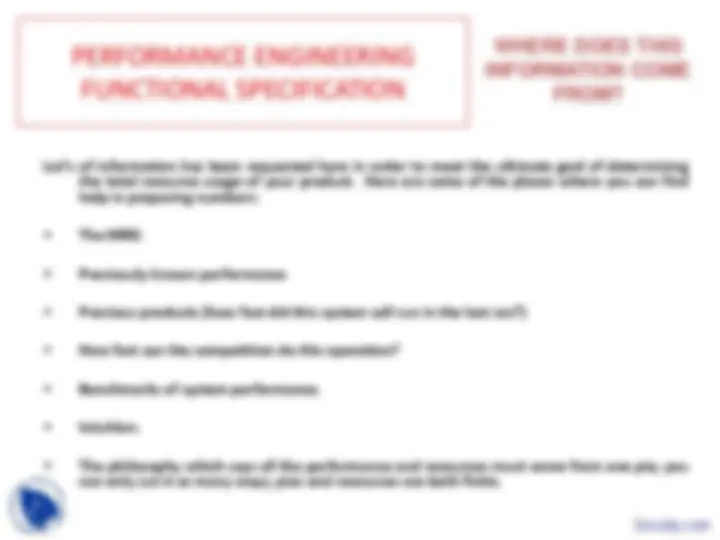
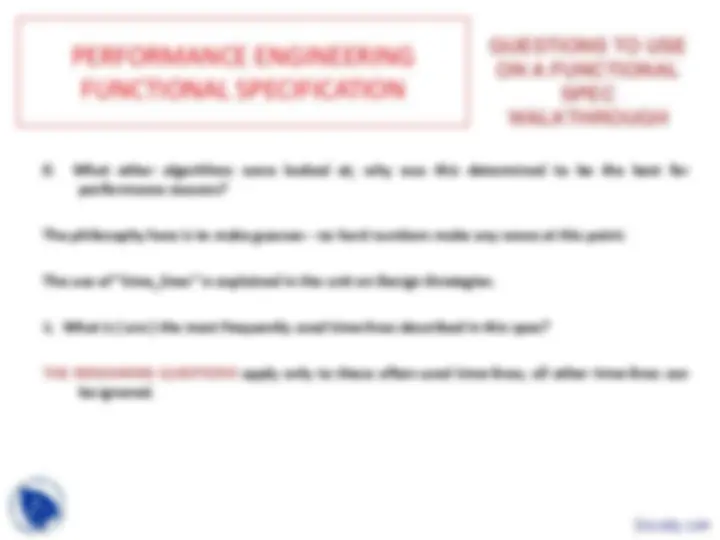
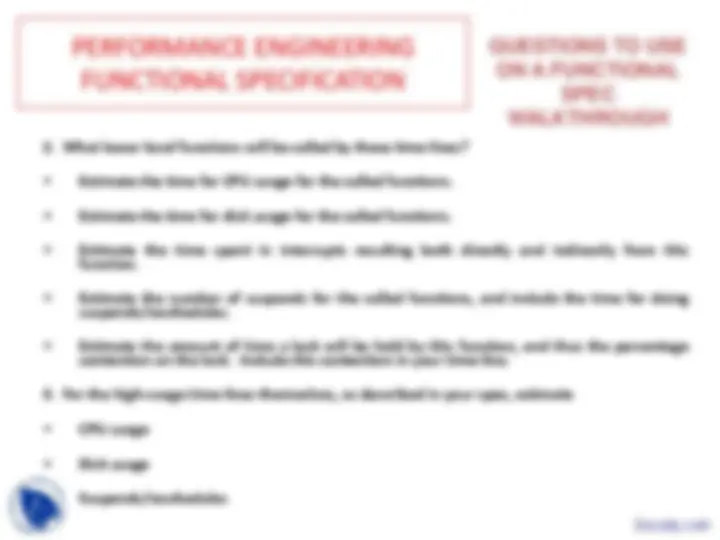
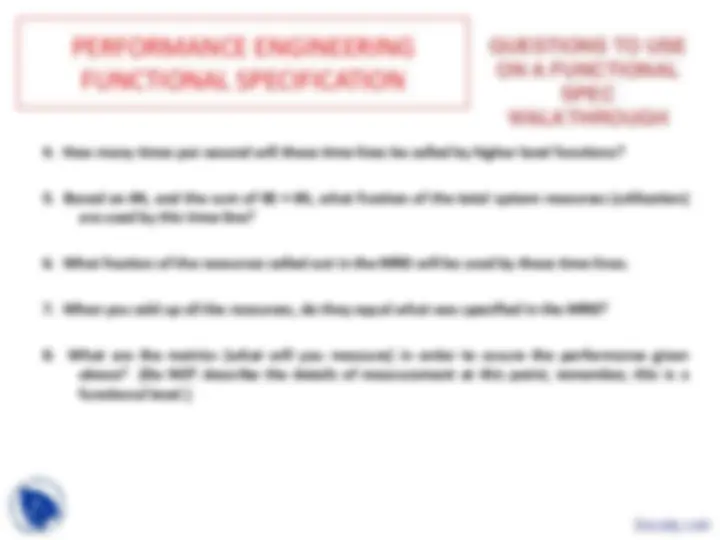
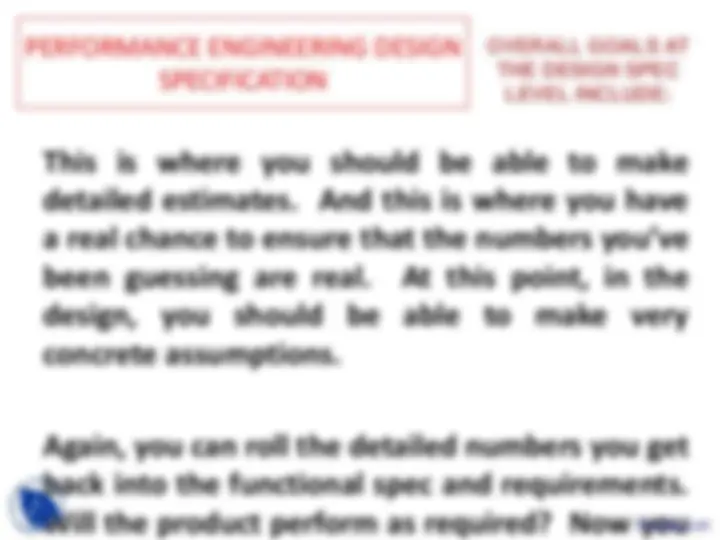
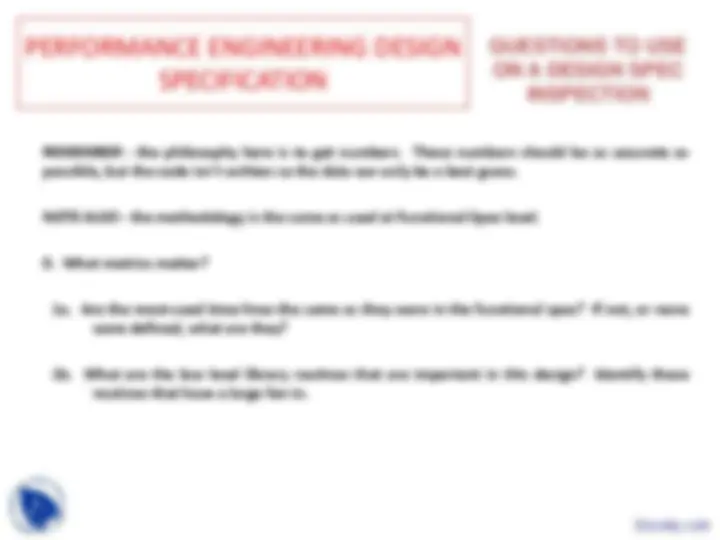
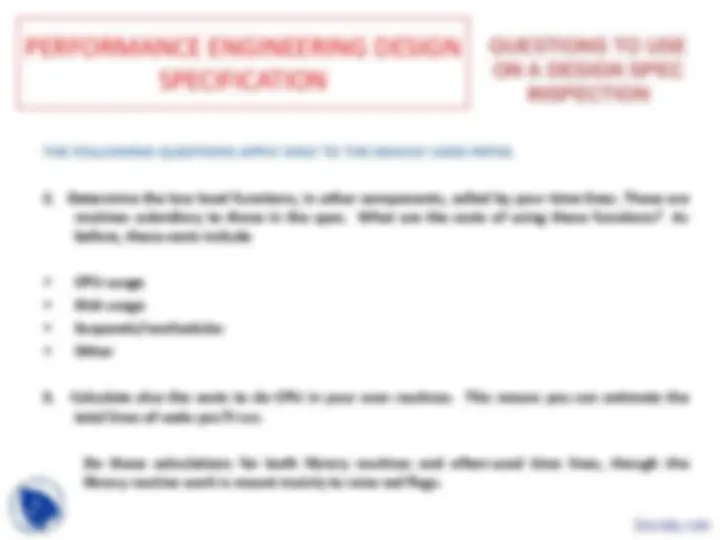
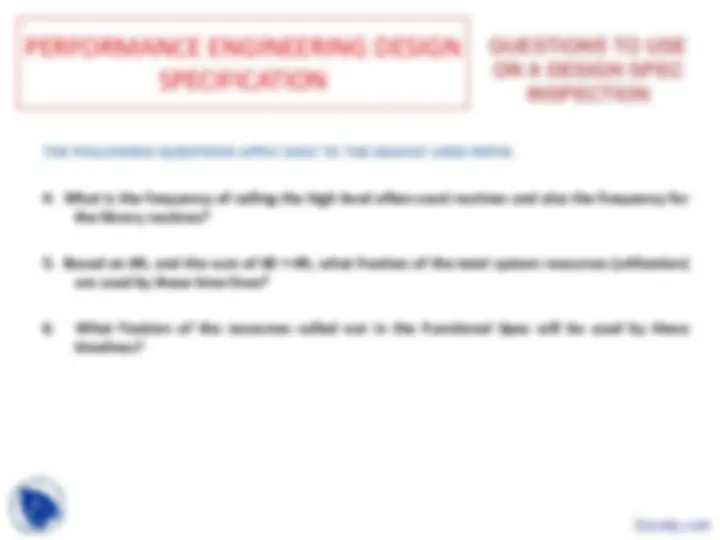
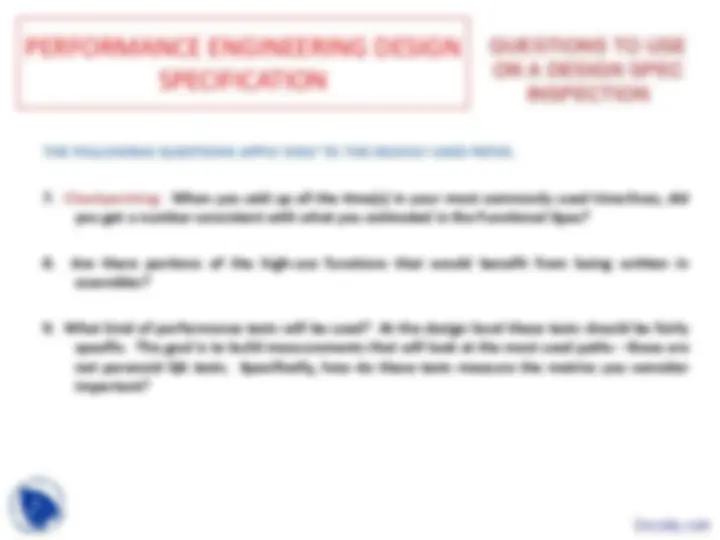



Study with the several resources on Docsity

Earn points by helping other students or get them with a premium plan


Prepare for your exams
Study with the several resources on Docsity

Earn points to download
Earn points by helping other students or get them with a premium plan
Community
Ask the community for help and clear up your study doubts
Discover the best universities in your country according to Docsity users
Free resources
Download our free guides on studying techniques, anxiety management strategies, and thesis advice from Docsity tutors
Some concept of Computer Systems Performance Evaluation are Measurement and Statistics, Performance Evaluation, Performance Metrics, Queueing Lingo, Software Performance Engineering. Main points of this lecture are: Software Performance Engineering, Interview, Performance Analyst, Performance Engineering, Building Performance, Performance, Elimination, Determine, Putting Breaks, System Calls
Typology: Slides
1 / 52

This page cannot be seen from the preview
Don't miss anything!













































4-6 years post-graduation experience in QA testing client and server applications
Demonstrated experience with MS SQL server databases
Experience with running UI automated test scripts. Familiarity with SilkTest preferred.
Exposure to multi-threading and network programming
Undergraduate degree from top-tier computer science/engineering university
Skills/Requirements
The Performance Engineer will provide technical leadership to the organization in the areas of software frameworks and architecture, infrastructure architecture, middleware architecture and UI architecture.
The Performance Engineer is expected to have versatile expertise in application performance (DB, middleware, UI, infrastructure). This engineer will collaborate with all teams within IT to implement an application performance measurement framework using end-to-end performance measurement and monitoring tools. Using data collected from these tools the Performance Engineer will work with the architects to influence application and infrastructure design.
This performance engineer must demonstrate skill versatility in the areas of application architecture, infrastructure architecture and application performance.
JOB RESPONSIBILITY
Docsity.com
This individual will work with the systems architects and key stakeholders to develop a performance strategy for SSPG products and implement a methodology to measure fine grained resource utilization.
This individual will establish a set of benchmarks and a benchmark methodology that include all supported storage protocols, the control path, applications and solutions.
Will also be an evangelist for performance within the group and ensure that performance is a core SSPG competency.
The position requires strong “hands on” development skills and a desire to work in a fast paced collaborative environment. Candidate must have a strong knowledge of operating system technology, device drivers, multiprocessor systems, and contemporary software engineering principles.
Skills/Requirements BS in CS/CE plus 7-10 years experience or equivalent.
Proven experience with storage performance benchmarking and tuning including hands on experience with performance related applications such as Intel VTune, SpecFS, and IOMeter
Strong operating system knowledge base with a focus on Linux, Windows and embedded operating systems.
Strong C/C++ programming and Linux scripting experience.
Knowledge of any of the following protocols and technologies is a plus: iSCSI, TCP/IP, Fibre Channel, SAS, File systems, RAID and storage systems
Design and development experience with embedded system is desirable
Candidate should possess excellent verbal and written communications skills.
Performance Engineering
Motivation
A project is planned and scheduled under tight constraints; marketing feels that it is strategic to offer this product, and upper management inquires on a daily basis about the status of the project. Numerous short-cuts are taken in the design and implementation of the project. The product gets to alpha "on schedule", but it's discovered that the product is bug-ridden, and performs at 1/10th the speed of the slowest competitor. When the product finally ships, it's 6 months behind schedule, never wins a benchmark, and serves only as a line item in the product catalog. Within a year, a project is launched to build it "right".
Example: Read the unbiased, "true-to-life" example portrayed below and answer the questions posed.
Performance Engineering
Motivation
**1. Can you get performance for free? Does it naturally fall out of a "good" design?
LOTS OF OTHER QUESTIONS RELATE TO THIS TOPIC:
Performance Engineering
Motivation
THE REALITY IS:
Docsity.com
Performance Engineering
Motivation
Good-performing systems result in:
THE BENEFITS OF PERFORMANCE ENGINEERING INCLUDE:
Performance Engineering
Introduction
In this section we begin looking at some of the practical ways of doing Performance Engineering. Performance Engineering isn't magic or miraculous, but an organized mechanism for building in performance.
Little’s Law ….. Utilization …. Blah, blah, !!!
Then a Miracle Happens!!
An amazingly good-performing product results.
KEY POINTS IN PERFORMANCE
ENGINEERING
The trickle down philosophy:
KEY POINTS IN PERFORMANCE
ENGINEERING
Bootstrapping
FUNCTIONALITY PERFORMANCE
REQUIREMENTS Where the specified functionality fits in the market.
Where the specified performance fits in the market. FUNCTIONAL SPEC What it will do; interfaces. Resources needed by each of the functions. To what extent are functions used. DESIGN SPEC/TEST How it will/does work. Specific performance costs.
KEY POINTS IN PERFORMANCE
ENGINEERING
Performance Engineering depends on a combination of verification and validation. For those of you who've forgotten this nuance, here's a brief review:
VALIDATION AND VERIFICATION
The costs to VALIDATE performance?
Establish performance goals.
Establish performance tests.
Schedule time for Performance Assurance to do their thing.
Schedule time to fix the performance.
The costs to VERIFY performance?
Establish performance goals.
Establish performance tests.
Schedule time for developers to conduct analysis and inspections.
Schedule time for Performance Assurance since no one will believe you've verified the performance.